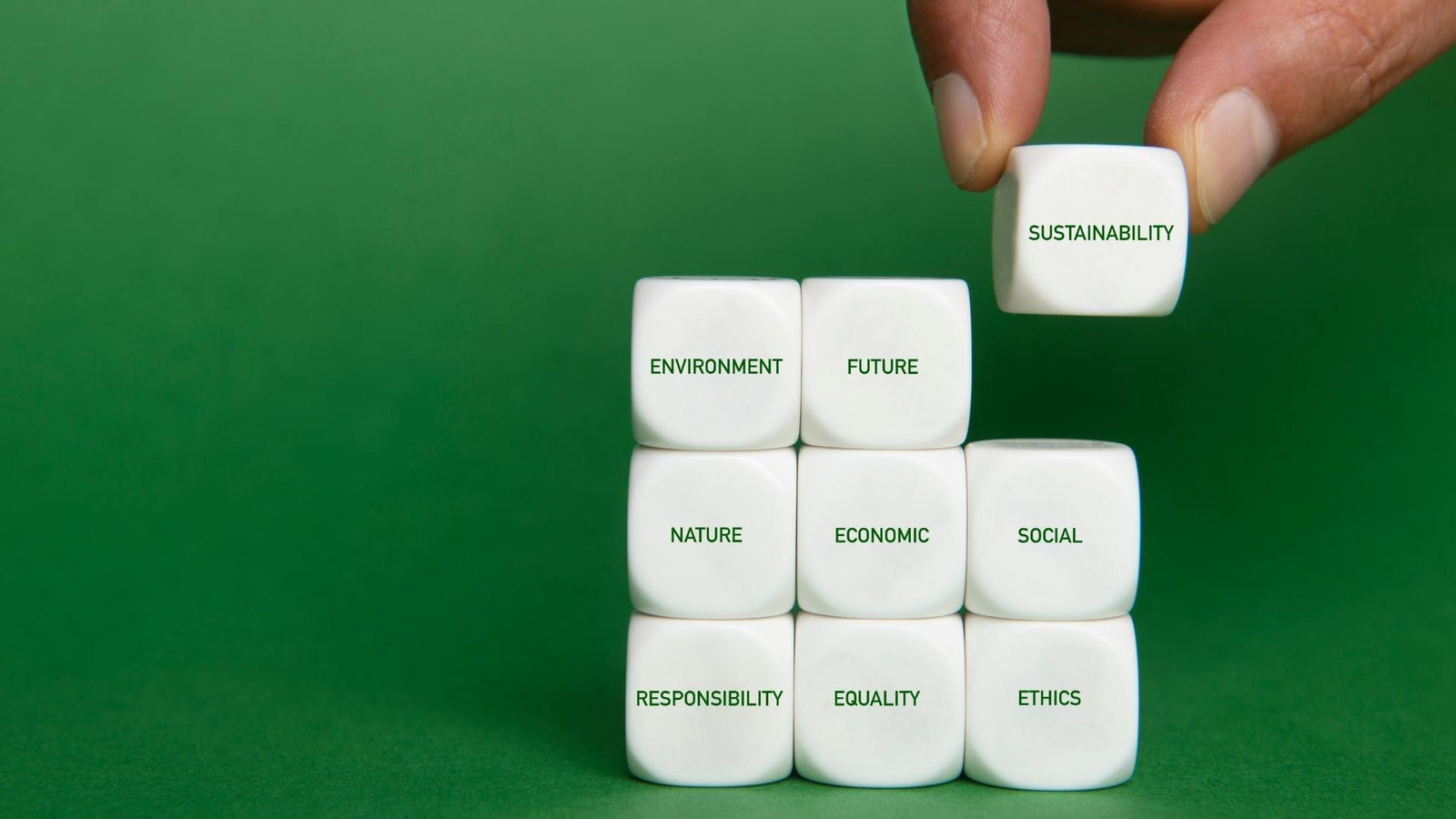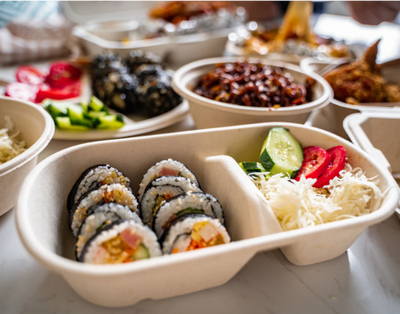Với những thay đổi không ngừng hiện nay trong mọi mặt của cuộc sống, đặc biệt là với sự hỗ trợ của Internet và các kênh truyền thông, các xu hướng cứ nối tiếp nhau xuất hiện. Dần dần, người ta thường coi các xu hướng là ngắn hạn, tạm thời và thậm chí là tiêu cực. Tuy nhiên, chúng tôi tin rằng xu hướng sống bền vững là một ngoại lệ đặc biệt. Tại sao? Vâng, trên thực tế, có rất nhiều lý do.
Thứ nhất, mô hình phát triển bền vững được đưa ra và phổ biến từ những năm 1980, đặc biệt khi giai đoạn sau Thế chiến thứ hai đánh dấu sự phát triển vượt bậc của mở rộng công nghiệp và thương mại. Gắn liền với đó là sự bùng nổ dân số toàn cầu, tình trạng ô nhiễm và cạn kiệt tài nguyên khiến con người nhận thức rõ hơn về những mối đe dọa đối với môi trường và sự sinh tồn của mình.
Trong những năm gần đây, sau khi chứng kiến và hứng chịu một số “tác dụng phụ” của hiện tượng nóng lên toàn cầu và thiệt hại về môi trường, chúng tôi quan tâm hơn đến hành động của mình đối với hệ sinh thái chung này. May mắn thay, cuộc sống bền vững một lần nữa lại nhận được sự chú ý từ lâu.
Dù không phải là người dẫn đầu xu hướng nhưng ít nhất bạn cũng không muốn trở thành kẻ đứng ngoài cuộc trong xu hướng đầy ý nghĩa này. Để giúp bạn hiểu thêm về ý nghĩa thực sự của cuộc sống bền vững, tại sao nó quan trọng và làm thế nào để sống bền vững, phần còn lại của bài viết này dành cho bạn khám phá.
Sống bền vững là gì?
Sống bền vững là lối sống trong đó những lựa chọn của chúng ta sẽ có ít tác động nhất đến thế giới xung quanh và áp dụng những cách sống tốt hơn vì một tương lai xanh hơn.
Thoạt nghe có vẻ đáng sợ vì phạm vi ảnh hưởng của nó; tuy nhiên, bạn chỉ cần điều chỉnh những điều nhỏ nhặt trong thói quen hàng ngày là có thể mang lại kết quả không ngờ.
Điều đẹp đẽ hơn là không có con đường tắt nào để tiếp cận cuộc sống bền vững. Đúng hơn, đó là một hành trình suốt đời để thử nghiệm, học hỏi, thất bại và chia sẻ kinh nghiệm với người khác.
Không giống như các xu hướng khác, chúng tôi hy vọng xu hướng này có thể duy trì ở đỉnh cao càng lâu càng tốt để kết quả có thể mạnh mẽ và lâu dài hơn.
Tại sao chúng ta nên bắt đầu sống bền vững ngay hôm nay?
Như chúng ta có thể thấy, Trái đất đang trả lời chúng ta nhanh hơn trước. Mỗi hành động tiêu cực mà chúng ta thực hiện trên hành tinh của mình sẽ gây ra hậu quả trong thời gian ngắn, chẳng hạn như động đất, mực nước biển dâng toàn cầu, cháy rừng, sóng thần và bão dữ dội, chỉ kể tên một số.
Giả sử mỗi người trong chúng ta giảm được một chai nhựa mỗi ngày. Với 7 tỷ người trên Trái đất, chúng ta đã cắt bỏ 7 tỷ chai lọ, tạo thêm không gian trồng cây thay vì những bãi rác nhựa độc hại. Chỉ cần nghĩ đến việc một người trong chúng ta “gieo” một hạt giống tốt, và con số đó nhân lên hàng triệu, thậm chí hàng tỷ, tác động chắc hẳn sẽ có tác động mạnh mẽ hơn chúng ta có thể tưởng tượng. Và quan trọng hơn, chúng ta sắp hết thời gian khi ngày càng có nhiều loài động vật tuyệt chủng; nạn phá rừng diễn ra nhanh chóng; thiên tai ngày càng nghiêm trọng, trái đất quay nhanh hơn.
Thay vì tìm kiếm một hành tinh khác và tiếp tục phá hủy nó như những gì chúng ta đã làm với Trái đất, chúng ta nên thay đổi thói quen thân thiện với môi trường hơn ngay từ hôm nay. Bằng cách đó, chúng ta không chỉ có thể cứu lấy “ngôi nhà chung” của mình mà còn đảm bảo cho các thế hệ tiếp theo của chúng ta vẫn có cơ hội chiêm ngưỡng Trái đất xinh đẹp như chúng ta đã từng.
5 Lời Khuyên Thiết Thực Để Sống Bền Vững Hơn
Bạn hiểu trách nhiệm của mình trong việc làm cho thế giới tốt đẹp hơn nhưng có thể băn khoăn làm thế nào để sống bền vững một cách hợp lý. Chà, với năm lời khuyên siêu hữu ích sau đây, bạn sẽ nhận ra rằng sống bền vững hơn không cần nhiều nỗ lực và thậm chí bạn có thể hối hận vì đã không biết về chúng sớm hơn.
1. Mua Ít - Chọn Tốt - Sử Dụng Lâu Dài

Vì chất lượng cuộc sống của chúng ta ngày càng tăng lên đáng kể trong thời đại hiện đại này, chúng ta thường nuông chiều bản thân bằng cách mua nhiều hơn. Không có gì sai khi tự thưởng cho bản thân sau một tháng dài làm việc chăm chỉ một vài bộ quần áo, giày dép mới hoặc các thiết bị công nghệ thông minh mới. Nhưng nếu bạn nghĩ kỹ hơn về điều đó, hãy kiểm tra kho lưu trữ của bạn và đếm xem có bao nhiêu món đồ còn sót lại mà bạn chỉ sử dụng một vài lần.
Do đó, cách tốt nhất để thực hiện thành công phương pháp này là suy nghĩ kỹ hoặc thậm chí nhiều hơn trước khi bạn quyết định mua thứ gì đó. Đơn giản chỉ cần tự hỏi mình một số câu hỏi sau:
Điều này sẽ giúp bạn loại bỏ thói quen mua sắm bốc đồng, tiết kiệm tiền và giảm lãng phí.
Hơn nữa, hãy thử chuyển sang những sản phẩm này vào lần tới khi bạn đi mua sắm hoặc đi tạp hóa để bắt đầu tạo ra sự khác biệt:
2. Hỗ trợ các doanh nghiệp địa phương

Điều thú vị là các doanh nghiệp địa phương độc lập, nhỏ hơn thường bền vững hơn các tập đoàn toàn cầu. Mua sản phẩm từ một công ty tận dụng các vật liệu tái tạo hoặc tái chế từ tài nguyên địa phương để cung cấp sản phẩm bền vững cho người dân.
Lấy EQUO làm ví dụ. Công ty có mục đích ý nghĩa về môi trường bằng cách tận dụng nguồn tài nguyên nông nghiệp còn sót lại để sản xuất các sản phẩm bền vững như ống hút 100% tự nhiên (ống hút cỏ , ống hút dừa, ống hút mía, ống hút cà phê , ống hút gạo ), đồ dùng , hộp đựng thực phẩm giúp bảo vệ môi trường. các cá nhân và doanh nghiệp F&B địa phương trở nên xanh một cách dễ dàng.
Mua sản phẩm từ những công ty đó có nghĩa là bạn đang chung tay đóng góp cho phong trào sống bền vững.
>> Đọc thêm:
- 5 Ống Hút Phân Hủy Tốt Nhất Trên Thị Trường
- 7 loại ống hút phân hủy sinh học tốt nhất: Thân thiện với môi trường và có thể phân hủy
- Có thể phân hủy Vs. Ống hút tái sử dụng: Loại nào thay thế thân thiện với môi trường nhất
3. Nói Không Với Thời Trang Nhanh
Thời trang nhanh là quần áo được sản xuất hàng loạt từ những chất liệu rẻ tiền, kém chất lượng và không thể phân hủy sinh học. Đây là xu hướng dự kiến của các nhà sản xuất nhằm tạo động lực để người dân thay quần áo cũ bằng quần áo mới để theo kịp xu hướng mới nhất.
Các nhà sản xuất sử dụng một quy trình độc hại để tạo ra những bộ quần áo rẻ tiền đó. Thêm vào đó, 60% quần áo mới có chứa nhựa, một chất liệu rất cứng đầu và khó phân hủy.
Những bộ quần áo này có thể dễ dàng bị sờn rách sau vài lần giặt và bị vứt vào bãi rác hoặc đốt. Một chiếc áo len Giáng sinh xấu xí đơn giản, vui nhộn có thể được mặc tối đa ba mùa Giáng sinh (“hy vọng vậy”) và vứt đi mà không hề do dự như lẽ ra phải như vậy. Chà, chiếc áo len đó có thể mất ít nhất 200 năm để phân hủy, vì vậy chủ nhân của nó phải đợi rất lâu mới có thể “gặp lại” nó trên thiên đường (hoặc một nơi nào khác, chúng tôi không biết).
Vì vậy, tốt nhất bạn nên chọn bộ sưu tập thời trang bền vững sử dụng cotton tái chế hoặc vải 100% tự nhiên. Ngoài ra, đừng quên một vết rách nhỏ trên áo hoặc quần của bạn có thể dễ dàng sửa chữa chỉ bằng một vài đường may. Mua quần áo cổ điển hoặc quần áo cũ là một lựa chọn bền vững khác để cập nhật bộ sưu tập của bạn mà không ảnh hưởng tiêu cực đến môi trường. Cuối cùng nhưng không kém phần quan trọng, hãy kéo dài vòng đời của quần áo càng nhiều càng tốt bằng cách bán hoặc quyên góp chúng.
4. Tiết kiệm năng lượng
Đây có lẽ là cách dễ nhất để sống bền vững mà không cần nỗ lực nhiều. Bạn đang tiết kiệm một lượng năng lượng đáng kể bằng cách tắt tất cả các thiết bị khi bạn không sử dụng hoặc ra khỏi nhà.
Tuyệt vời hơn nữa, việc chuyển sang sử dụng bóng đèn tiết kiệm năng lượng và vòi tiết kiệm nước có thể giúp bạn tiết kiệm rất nhiều tiền điện và năng lượng cho Trái đất.
5. Giảm lượng khí thải carbon của bạn
Chi phí nhiên liệu cho giao thông vận tải ngày càng tăng. Ngoài ra, các phương tiện giao thông còn thải ra rất nhiều chất ô nhiễm ra môi trường, ảnh hưởng xấu đến hành tinh của chúng ta.
Chuyển sang các lựa chọn thân thiện với môi trường và tiết kiệm năng lượng hơn như ô tô điện, phương tiện vận chuyển điện công cộng hoặc thậm chí là xe đạp sẽ giúp ích rất nhiều trong việc giảm ô nhiễm carbon.
Ngoài ra, lần tới khi lên kế hoạch cho chuyến đi của mình, hãy cố gắng nghĩ cách đi chậm hơn nhưng bền vững hơn, chẳng hạn như sử dụng tàu hỏa hoặc xe buýt thay vì máy bay. Chuyến bay một chiều tạo ra lượng khí thải carbon khổng lồ ra môi trường gấp nhiều lần so với các phương tiện vận chuyển khác.
Hãy làm cho chuyến du lịch của bạn trở nên ý nghĩa hơn, bền vững hơn và mang lại nhiều trải nghiệm thay đổi cuộc sống hơn bằng cách sống chậm lại và thực sự tận hưởng từng phút trên chuyến đi.
Một Tương Lai Tươi Sáng Hơn Bắt Đầu Từ Hành Động Nhỏ Hôm Nay
Hành trình thay đổi thói quen ban đầu có thể khiến bạn cảm thấy choáng ngợp. Tuy nhiên, một sự thay đổi nhỏ trong hoạt động thường ngày của chúng ta như tắt đèn, sử dụng túi tái sử dụng, mang theo chai tái sử dụng, sử dụng ống hút bền vững hay quyên góp quần áo cũ sẽ tạo ra tác động ấn tượng trong tương lai.
Tiếp cận cuộc sống bền vững sẽ không bao giờ dễ dàng hơn nếu bạn thử những lời khuyên hữu ích của chúng tôi ở trên. Hãy bắt đầu từ việc nhỏ bằng cách thử thách bản thân sống bền vững trong ba ngày, sau đó là năm ngày, một tuần, một tháng và ai biết được, cả đời, và bạn sẽ nhận được lời “cảm ơn” tuyệt vời từ Đất Mẹ.
>> Đọc thêm:
- Các lựa chọn thay thế thân thiện với môi trường tốt nhất cho nhựa giúp cuộc sống của bạn xanh hơn
- 10 Sản Phẩm Bền Vững Phải Thử Năm 2022
- Ống Hút Không Phải Giấy: 7 Ống Hút Phân Hủy Sinh Học Tốt Nhất Cho Môi Trường Của Chúng Ta
- 6 Ống Hút Tái Sử Dụng Tốt Nhất Năm 2022 Cho Đồ Uống, Sinh Tố, Du Lịch, V.v.






